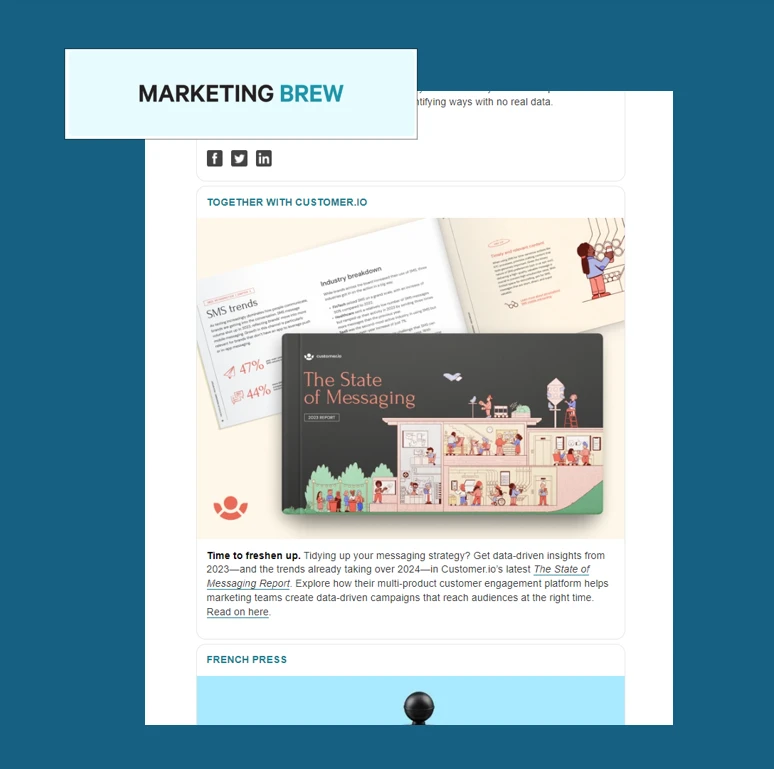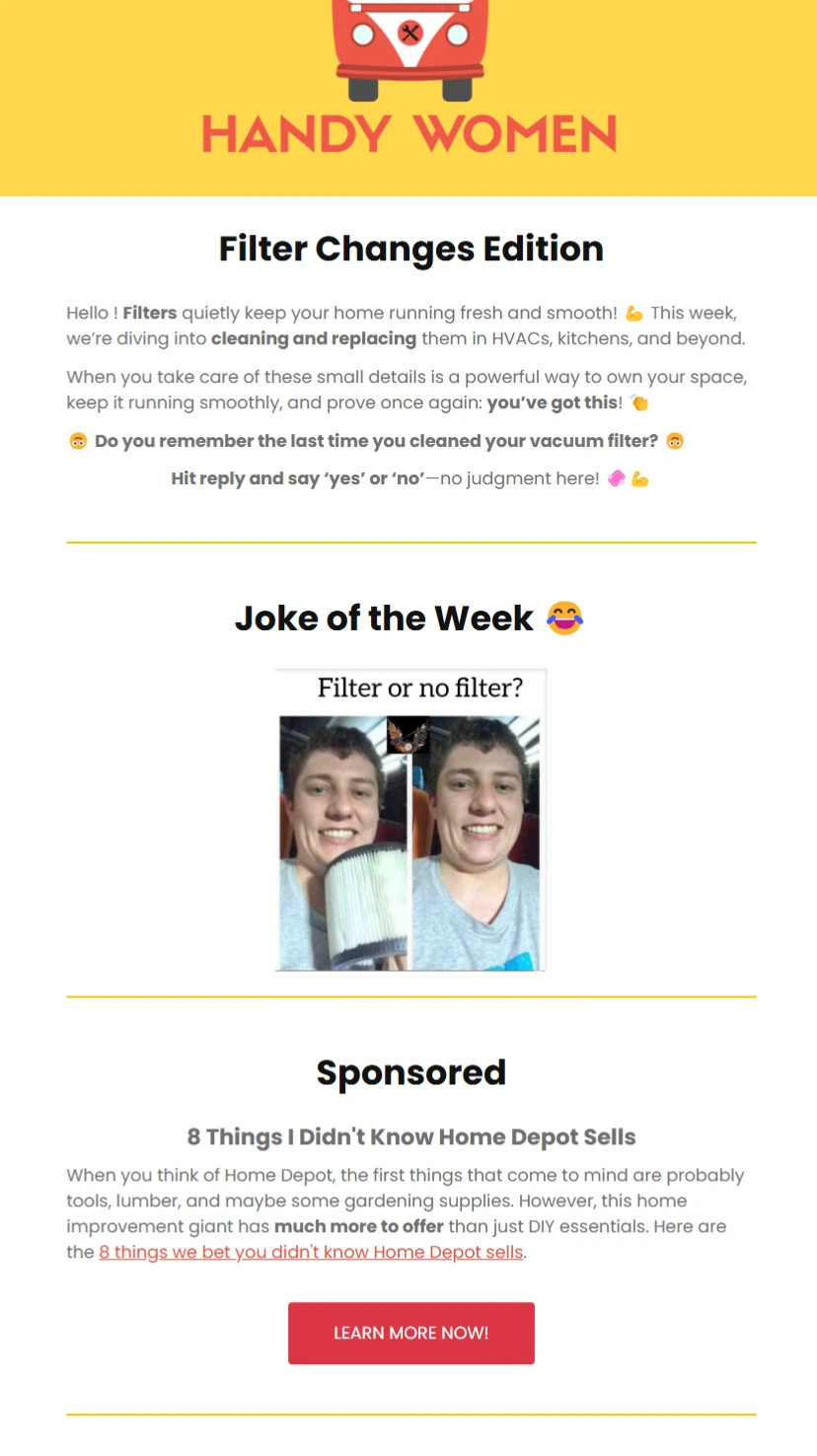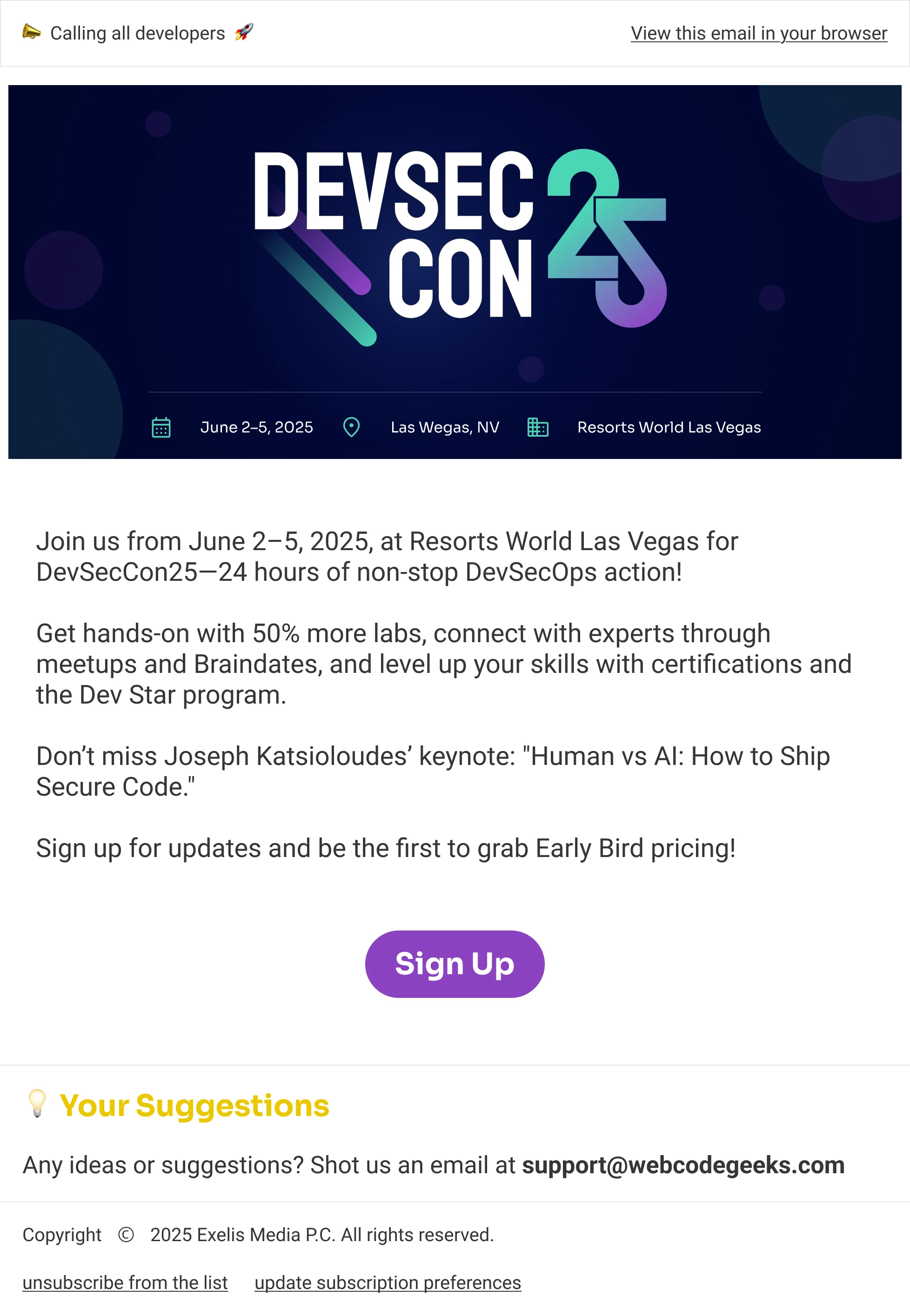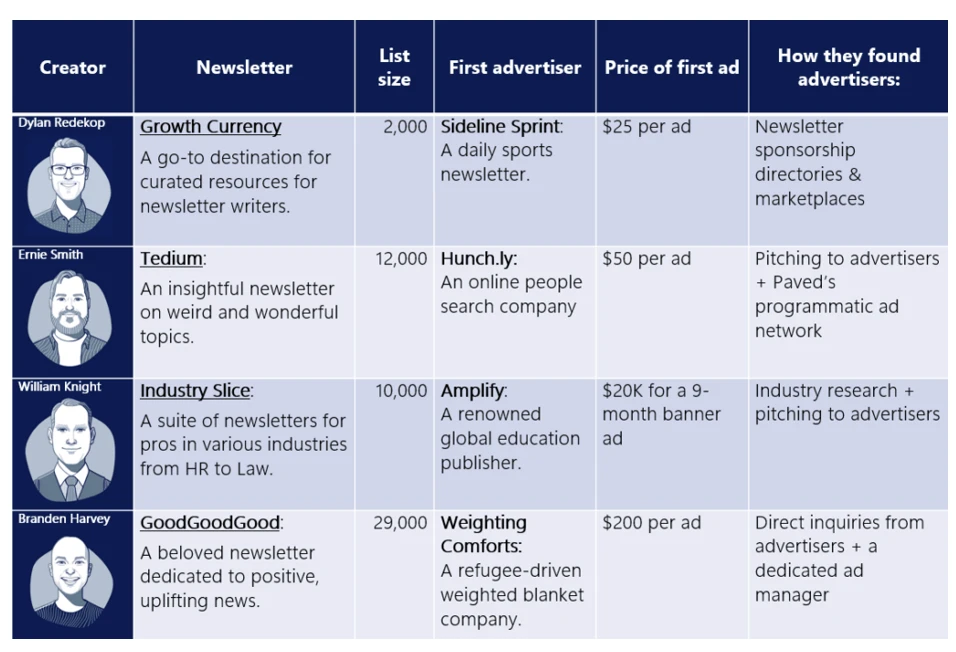Get started with newsletter advertising
 Andres, Spanish Marketing Manager, and Betânia, Customer Support Specialist
Andres, Spanish Marketing Manager, and Betânia, Customer Support Specialist
In the last century, most people started the day with a morning paper. Nowadays, many start the day with something completely different: email newsletters.
And just like newspapers before them, email newsletters are often monetized via ads. If your newsletter has an engaged audience, a growing number of brands would love to advertise with you. In this article, we'll dive into all you need to know to get started with newsletter advertising.
We invited Wendy from Paved to share her expertise in this article. Paved is a newsletter sponsorship platform with a marketplace that lets email newsletters with 5,000 or more subscribers access sponsorship opportunities.
It's a super easy way to monetize your list, and you can get started in a flash with Paved's MailerLite integration. Check it out here.
What is email newsletter advertising?
Email advertising—also known as newsletter sponsorship—is the practice of selling paid ad spots in a newsletter to brands that want to reach a niche audience.
This monetization strategy helps creators earn money from their work.

Types of newsletter ads
Newsletter advertising typically falls into 2 main categories: sponsored and dedicated emails. A sponsored email consists of a single placement within a newsletter, but a dedicated email takes up the entire issue with content from the advertiser.
Let’s explore 2 examples from real MailerLite users who monetize with ads.
1. Sponsored emails
Sponsored emails appear beside regular newsletter content, allowing them to blend in with the issue as a whole. Some publishers will even work with their sponsors to design a sponsored email to fit their brand style.

Sponsored emails may appear in several forms, including:
Featured headers
Display ads
Classifieds
2. Dedicated emails
Dedicated emails are entirely devoted to a single advertisement, allowing the advertiser to retain full control over their design. However, the email should include the newsletter’s sender name, logo, and advertising disclosure to distinguish it from spammy practices like purchased lists.

Since dedicated emails allow exclusive access to a newsletter audience, they tend to command higher rates than their sponsored email counterparts
How to sell ad space in newsletters
Here are 3 things you should do to start selling ad space in your newsletter.
1. Set the right ad rates
When monetizing your newsletter, it's essential to understand common pricing models:
CPM (cost per mile): This model charges advertisers per 1,000 email subscribers. For instance, a $500 campaign sent to 20,000 subscribers equates to a $25 CPM.
CPC (cost per click): Advertisers pay based on the number of clicks their ad receives. This model is performance-based, ensuring payment only when subscribers click the ad. At Paved, our top-performing publishers earn as much as $5.00 per click.
You should also factor in audience size, engagement metrics (open and click rates), and the type of ad placement.
Due to their exclusive content, dedicated emails earn higher rates, while sponsored placements within regular newsletters might be priced lower. Offering various ad packages, such as month-long sponsorships, can also attract more advertisers.

If your newsletter boasts above-average open and click rates, you can justify higher rates. Starting with slightly lower rates can facilitate initial partnerships and, as you gather strong performance data, you can adjust prices accordingly.`
2. Build a media kit and sponsorship page
Most advertisers will ask for a media kit, which should include:
Newsletter overview: Topics, launch date, and popular editions
Audience insights: Engagement metrics, demographics, and past sponsors
Ad opportunities: Placement options, pricing, and booking information
Even a smaller list can attract sponsors if engagement is strong. If you have demographic data from surveys or list analysis, share it to strengthen your pitch.
The easiest way to create a sponsorship page is to connect MailerLite with Paved and generate your sponsorship booking page. It includes a free media kit, auto-synced performance metrics from MailerLite, and more.
3. Connect with advertisers
Make it easy for advertisers to find you. Add an Advertising or Work with Me page to your site with your media kit and contact info. Over time, showcase past sponsors and campaign results.
Be proactive—contact brands you already mention in your newsletter. Find PR contacts on their websites and pitch them with your media kit. Although outreach takes time and effort, it’s an effective way to secure sponsors.
The benefits of offering ads in your newsletter
Adding sponsorships to your newsletter can boost your revenue, enhance your audience’s experience, and strengthen your brand.
Here’s why it’s worth considering:
The revenue potential of newsletter ads
Newsletter sponsorships create a direct monetization channel, allowing you to earn from brands eager to reach your audience.
For example, if you run a weekly newsletter and offer:
A primary sponsorship for $150
A classified ad for $50
You'll earn an extra $800 per month in passive income—without changing your content strategy. To estimate your revenue potential, check out this newsletter pricing calculator.
Building rapport with readers with relevant offers
Sponsored content is an opportunity to introduce your audience to valuable products, services, and resources that align with their interests.
When done right, it can:
Boost engagement with interesting, useful recommendations.
Reinforce your credibility by sharing brands you genuinely believe in.
Provide extra value through exclusive deals, whitepapers, e-books, or tools your readers will love.
By selecting ads thoughtfully, sponsorships become a natural, engaging part of your newsletter, rather than an interruption.
Best practices for email advertising
Ready to try ads for yourself? Whether you're testing email newsletter ads for the first time or optimizing existing placements, these best practices will help you maximize impact and keep your readers happy.
Be transparent with your audience
First, you should learn what your subscribers think about sponsorships. Before running ads in your newsletter, you can survey your audience to see if they’re open to ads. When you ask what interests them, you have a better chance of building a successful sponsorship business.
Try different sponsorship placements and formats
Based on data from Paved, sponsorships placed closer to the top of your newsletter typically perform better, earning a higher price tag. Most creators start around the $100-$500 fee range and increase prices after the placement has a few successful sponsors.
Also, test different formats to see what your audience engages with. Check the image below to see examples of native ads, weekly tools, and weekly link ads.

Align the newsletter content with the sponsorship
Don’t forget to blend your sponsorship placement with your newsletter’s design. Bonus points for working with your sponsor to edit the ad copy to suit your newsletter’s voice and tone.
Choose sponsorships relevant to your audience
Audience alignment is key. Before you accept sponsorships, make sure the offer is something your subscribers will actually want. Anything else might erode your readers’ trust and lead to excess unsubscribes.
Use flexible pricing and discounts
Publishers who offer sponsorship discounts are seven times more likely to close ad deals than those who don’t. Flexible pricing and last-minute deals are incredible incentives for advertisers to work with you.
Allow subscribers to opt-out
If people prefer not to see ads, you can encourage them to upgrade to an ad-free paid subscription.
Label your sponsorships
Another crucial step in running a successful ad is clearly labeling your sponsorships. Not only will this help gain your audience’s trust, but it’s also required to stay in line with federal regulations. The Federal Trade Commission (FTC) released a guide to native advertising that you can follow.
Final thoughts
Newsletter sponsorships can be a win-win, allowing brands to reach engaged audiences while helping publishers generate steady income.
With more brands shifting ad budgets to trusted creators, now is the perfect time to start. Paved data shows newsletter sponsorships can earn as much as $1 to $5 per click, making them a serious monetization opportunity.
If you’re selling your first ad or refining your approach, focus on transparency, audience alignment, and strong placements. Get those right, and sponsorships can feel like a natural part of your newsletter—not just another ad.

Wendy writes for Paved, helping brands make the most of newsletter sponsorships. Previously, she optimized content for top SaaS companies like Mailchimp. She specializes in making tech topics engaging and accessible for everyone online.
